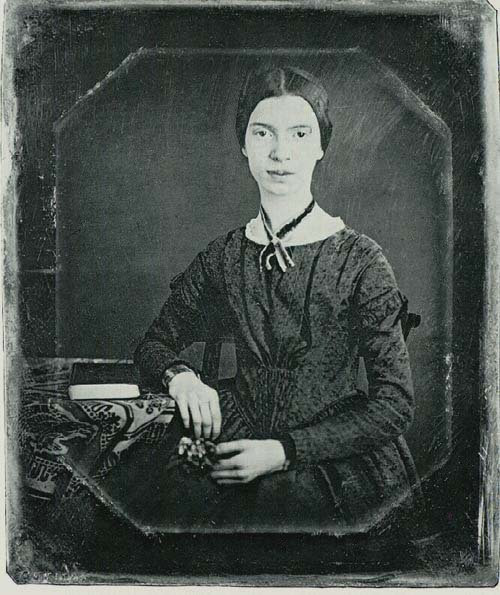Odébb ily hajnalban álltunk —
Fel ő épp ily délben ült —
Reszketve — majd egyre jobban
Epihenése előtt.
Selypegve el sose mondta —
Nem való ez nem nekem —
A transz némította őt el —
Engem meg a gyötrelem —
Aztán — mikor jött az este
Függönyt húzott valaki —
Zsupsz! Egy éles szárnysuhintás!
És a tengelice odaki!
Annyi érthető itt, hogy valaki haldoklik, virrasztottak fölötte és a végén elszáll a lelke; de nem egy részlet érthetetlen, van, akit ez nem zavar; nem én töltöttem fel a verset. — Tengelice: az eredetiben kenderike, hasonló madár. Magyar fül számára otthonosabb a tengelice, különben is teljesen mindegy, jelenthetné a lelket bármilyen más madár, gólya, galamb, csalogány, sirály is...
(A vers 1858 körül keletkezett)



